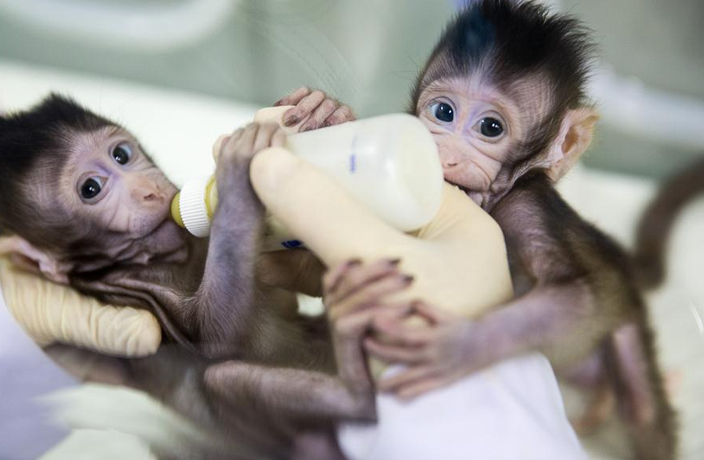The first monkey-human chimeras have been developed by a team of researchers working in China, in a step towards using animals to develop organs for human transplants, the Guardian reports.
Scientists from the Salk Institute in the United States and the Murcia Catholic University in Spain, have produced monkey embryos containing human cells. The research, led by Professor Juan Carlos Izpisúa Belmonte, was conducted in China in order to avoid legal and ethical issues.
Chimeras are organisms made up of cells from two different species. They are produced by reprogramming adult human cells into stem cells and injecting them into animal embryos. The stem cells can give rise to any type of cell in the body and form into organs.
Chimeras are a step towards animals to human organ transplants. Scientists believe that organs grown inside animals with human stem cells can be used for human transplantation and address issues of organ rejection or the lack of organs available.
Pig-human and sheep-human chimeras with some human cells have already been produced, as pigs and sheep are seen as having the perfect size organs for human transplantation. However, the pig and sheep chimeras only contained roughly one in 10,000 cells that were human. The development of human-monkey chimeras is believed to teach us more about human-pig chimeras.
Scientists also believe that human-monkey chimeras can be used for research on neurological and psychiatric diseases. Alejandro De Los Angeles of Yale University states, “In theory, for diseases where primate models are not good enough, making human-monkey chimeras could provide a better model of brain diseases.”
Such research brings up many ethical concerns. Legal barriers concerning the ethics of their experiments led the scientists to move their work to China. To avoid ethical concerns, the chimera embryos are destroyed within a 14-day gestation period, in which they can develop organs or a nervous system. De Los Angeles confirms that there is “still a long way to go before human-monkey chimeras are brought to term."
Scientists also face the ethical concern of potentially growing a functioning human brain, creating a conscious chimera. However, they claim they have created a mechanism so that should the human cells migrate to the brain of the embryo, they would self-destruct.
[Image via Xinhua]



















0 User Comments